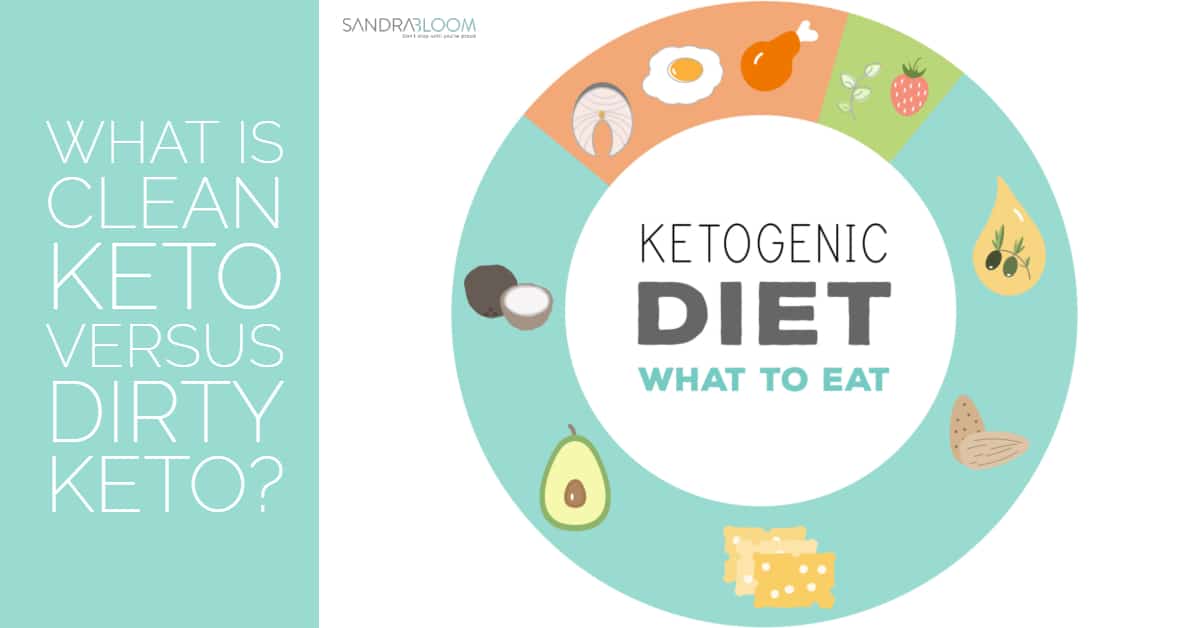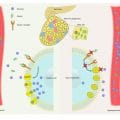Most common keto-diet mistakes and how to avoid them

Dirty keto versus clean ketogenic diet
Whenever you consider making a major lifestyle change you should do as much research as possible. The problem with ‘trendy’ diets, like the ketogenic diet, is that most of us read these amazing celebrity testimonials and jump right in without giving it enough thought and research.
The sad truth is that most people are doing keto wrong. Because of this, when they fail to get results, they quit. When followed properly, the keto diet is a sustainable, long-term lifestyle diet. But when done incorrectly it can leave you feeling hungry and moody – a killer combo that will lead to you falling off the wagon hard.
Dirty ketogenic diet vs clean keto
Dr Stephanie Estima describes those who jump head into keto as following a ‘dirty’ keto diet.
The general premise of the keto diet is that you should consume high amounts of fat, a moderate amount of protein and a low amount of carbs. In principle this sounds simple enough – right? However, when put into practice, people still get it very wrong.
One of the biggest complaints of the keto diet is that after 2-3 weeks people are still hungry, no matter how much fat they consume. There could be many reasons for this but the most common culprit is our ‘microbiome’. (the billions of good and bad bacteria that live in your colon)
We need to consume healthy and anti-inflammatory foods that feed the human microbiome. A properly formulated ketogenic diet fulfils these requirements.
When you start making mistakes, the craving for carbs begin and, before you know it, you’re off the wagon, feeling like a failure.
If you’ve been in this position before don’t despair – most of us have fallen off the dieting wagon at least once in our life. This is how the weight loss industry thrives – by keeping you from reaching your full weight loss potential you will forever be at their mercy. Even once you’ve shed the pounds you’ll probably pile it back on because you haven’t developed the skills and knowledge to sustain your dream weight.
Don’t fall into the dirty keto bear-trap!
Dirty keto is what the weight loss market wants us to buy into – so we enjoy the high of a quick fix weight loss, yet continue to pile the pounds back on. This is because people will unwittingly go cold turkey on all carbs (even veggies) and replace them with foods that are equally devoid of nutrition.
Contrary to popular belief, swapping bread and pasta for bacon and butter is not a sustainable way to keep your weight off or maintaining optimal health!
Put simply, dirty keto means that you are substituting one bad habit for another.
Of course, cutting down on carbs is a great achievement, but it’s only half the battle. Common sense tells us that a diet of bacon and butter is not going to benefit our health in the long run.
A lot of ‘experts’ will claim that you can sustain the keto diet by eating fatty meats like bacon every day, as long as you avoid the carbs, but in the long-term, this is not the right approach.
Go for the sensible and clean ketogenic approach
A sensible keto diet is not based around only eating more fatty foods, it’s about getting more low-carb, high-fibre plant based food into your daily diet, plus the daily amount of healthy fats, proteins and some carbs.
Of course, this doesn’t sound as exciting or enticing does it? That’s why we are sold on the keto diet by being told we can eat as much bacon and butter as we like!
A plant based diet means more leafy green veggies (yes, veggies – despite what some ‘experts’ might say, vegetables are not off the table completely). Dark, leafy greens with a high fibre content should be layered with the appropriate amount of healthy fats and protein.
This is what is known as the ‘clean’ keto diet. What makes it so great is that is allows vegetarians to also try the keto diet without being told that they ‘need’ to be eating meat.
For many, the keto diet is only about weight loss but you should ask yourself the following
For most people the keto diet is considered a ‘quick-fix’ for losing weight but if you are really serious about your health you should also ask yourself:
- How can I reduce inflammation through my diet?
- What kind of food will nourish and feed my cells?
- How can I stabilise my mood and increase my energy levels?
- What food will encourage a healthier, happier body and brain?
- Which foods will improve my hormonal health?
- Why am I overweight?
- Why am I feeling exhausted and tired all the time?
- Why do I have a hard time focussing on my work or studies?
- What is going on with my sleeping pattern?
- My mood swings are out of control?
- Why happened to my stamina and sex-drive?
- and so on…
Our brain tells us a lot of what is going on in our bodies!
The answer to all these questions is that we need to look into the brain first. The brain is often the most neglected part of our body as it can’t be seen. This means we take its health for granted, but imagine if there was a glitch? It would affect our entire lives and make even the simplest of tasks impossible.
Healthy vegetables and healthy fats are the keys to better health. More importantly, they are the key to good brain health. By ensuring our brain remains healthy and optimising its performance, the rest of our body will also follow suit. One way to ensure this happens is by feeding it properly.
The brain affects most of our health including our hormones, energy levels, focus, weight and mood.
We can ensure our brain, and essentially the rest of our body remains healthy, by eating more nutrient-dense food. We need to follow a ‘clean’ keto diet. That means less bacon and more broccoli.
Eat your veggies, soothe your health
As I mentioned before, a keto diet needs to contain sufficient high-fibre vegetables in order for you to reap its true benefits. All carbs are not equal and can have different effects on your body and blood-sugar levels.
That means your plate should be full of dark leafy greens like kale, spinach, broccoli, swiss chard and bok choy. These are all low in carb but high in fibre, which helps your body to become fat adapted, or ketogenic. You can also add some fermented foods like sauerkraut and Kim chi, however, fermented foods may have a different effect on each individual so pay attention to how it makes you feel.
Cleaning up debris in the body with insoluble fibres
Insoluble fibres do not dissolve and cannot be broken down by the gut. For this reason, it’s often known as an anti-nutrient, as it can’t be broken down. Instead, it passes through our bodies, cleaning up debris and sopping up excess hormones. It also doesn’t affect our blood sugar levels.
Those who follow a ‘dirty’ keto diet are likely to complain that by the second or third week they’re starving. In other words, their microbiome is starving. Our response to this hunger is to consume starchy foods that resist digestion, such as oats, beans and legumes.
A standard keto diet consists of fat (70%), protein (20%) and carbs (10%), which is likely to leave you hungry by week three. This results in a binge of protein and carbs. However, by introducing more fibre in your meals, this hunger should subside.
When the microbiota is fed it produces a chain of fatty acids known as butyrate. Our bodies can make butyrate from healthy fibre and our digestive system needs it to function properly. Butyrate can help decrease gut permeability and it may be important for gut-related diseases from autoimmunity to obesity to cancer.
When your gut is less permeable your are less likely to develop food allergies and intolerances. Empowering the lining of the gut is essential but the anti-inflammatory effects of butyrate go way beyond the gut and it also helps to prevent inflammation, autoimmune diseases, colon cancer and heart disease.
Longtime readers of this site will know that chronic inflammation is the root cause of most diseases, so keeping it at bay is essential. Good gut health can also help prevent bloating, gas, indigestion and diarrhea.
Eating too much protein on a ketogenic diet
Another bad habit of those following the dirty keto diet is that they consume too much protein. This is because, when your microbiome isn’t being fed, you will feel fuller from eating protein than fat.
Consuming too much protein can lead to raised insulin levels, similar to how eating carbs can. Excess protein is converted into glucose, which is what leads to higher insulin levels and fat storage. Too much protein is also related to creating more cancer cells.
How to implement Clean Keto diet?
When you look at your average daily meal what do you see? How much of what is on your plate is plant, fat and protein?
The high-fibre veggies should take up the majority of your plate. In fact, you could eat 3-4 plates of plants like spinach without having to worry about messing up your macros.
If that wasn’t incentive enough to eat more spinach, remember that it’s packed with vitamins and minerals like zinc, vitamins A, C, E and K, calcium, iron, magnesium, phosphorus, potassium, copper, and manganese.
For those who have been struggling with the keto diet, I would urge you to look closely at your food consumption. How much of what you eat can be considered ‘real food’?
Eat clean, don’t forgo the veggies and look at your lifestyle as a whole. Are you getting enough sleep and exercise? Following a clean diet isn’t enough to overhaul your weight. Keto is not a miracle diet, it simply facilitates better and healthier eating habits.
And last but not least, your taste buds are not neglected on a keto diet…
Some must-reads to custom-make a healthy keto approach
My personal approach to a healthy Ketogenic diet is a whole-food, high-fat, low-carb diet. My diet contains lot’s of low-carb veggies, lot’s of healthy fats and a medium amount of proteins.
The books that helped me with personalising my diet that works include:
- Eat Fat, get thin, by Mark Hyman, MD
- Eat Fat, get thin, by Mark Hyman, MD, the cookbook
- Fat for Fuel, Dr. Joseph Mercola
- Fat for Fuel, Dr. Joseph Mercola, the cookbook
- The Real Food Diet, Dr. Axe
- The Gut repair cookbook
- The Ketogenic Bible
- The beginner’s Keto Diet cookbook
- The Autoimmune Solution Cookbook
- The Wahls Protocol
- 21-Day Ketogenic diet Weightloss
Empowering others via my anti-ageing wellness platform and holistic health books
I hope you liked this clean keto versus a dirty ketogenic article. If you would like to learn more about healthy diet, recipes and holistic living and clean beauty lifestyle, ensure to check out other pages of this anti-ageing wellness platform.
I changed the way I eat in 2011 when I was diagnosed with hypothyroidism, chronic fatigue and adrenal fatigue, conditions where the thyroid is affected. I had no energy, was exhausted, desperate, and my weight had sky-rocketed.
Because of that, I decided to ditch sugars, processed foods, grains, dairy and toxic chemicals. And step-by-step, I introduced a whole-foods-based (first Paleo) and later an AIP (autoimmune protocol) friendly ketogenic approach to food which gave me my life, vitality, happiness and energy back!
Now, through my holistic wellness books and anti-ageing health platform, I want to empower people around the world do the same and regain their health, hair, life, vitality and beauty!




